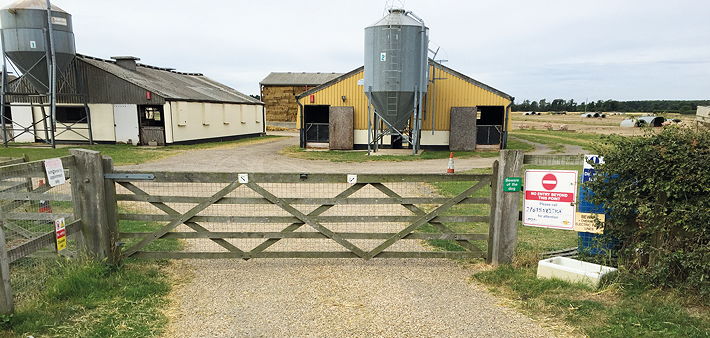Annie Davis has worked at the George Veterinary Group for 19 years. She is one of a team of seven pig vets, based in Malmesbury, Wiltshire
I live with three teenage children. Conflict and disagreements are the norm. None of them are apparently keen for any consensus of opinion. Wisdom and the potential for resolution is drowned out by vociferous and unhelpful comments. It seems that our house is a micro-example of the country as a whole.
This week, in amongst all the political lunacy, we heard that we should expect African swine fever (ASF) to occur in the UK within the next year.
This seemed to imply a fait accompli, an admission of defeat. Why can’t we keep it out?
Starting from an agreed position is important – what is our basic premise? If it is that we should and can keep this disease out of the UK then we stand a better chance of doing just that.
Political support around the challenges of keeping ASF out appears to be low, but looking to our own units and our own behaviour will be important in facing these challenges.
Compared with Asia, where endemic pig diseases are more prevalent, chaotic and unstable, our management of ASF should be less challenging (in theory at least).
Swill feeding in this area is the origin of most of the outbreaks and often one of the most common mechanisms for reinfection.
Pigs have been used as waste disposal units for centuries – this poses a social science nightmare when trying to control diseases such as ASF, as accepted customs and behaviour are hard-wired into the culture. From a socio-economic standpoint, where there is meagre or no compensation, it is inevitable when disease occurs that infected animals are sold for meat, the by-products and waste from which goes straight back into pig food.
Control of ASF, and ultimately eradication, will involve the understanding of human behaviour, not just how the disease works.
We have the framework for good practice already – in Red Tractor, in the Welfare Codes.
We no longer feed swill and have been on the front foot in terms of biosecurity for some time following our experiences with foot-and- mouth and CSF at the turn of the century. Farms have gates and perimeters, we have movement standstills and built-in restrictions, but ASF won’t necessarily respect these.
Continuing to keep enhanced standards of biosecurity is not just about ‘going through the motions’, but is crucial in the bigger picture. We have the mechanisms in place for early detection – producers and vets are on high alert should symptoms present themselves.
Reviewing biosecurity on our farms, including our visitor policy, how tidy our farm is, rodent and fly control and (for those unfortunate enough to be close to populations) preventing contact with both the public and feral pigs are crucial.
In the unhappy event of ASF appearing in the UK, all these factors will be critical in containing and ultimately eradicating it.
ASF is threatening 75% of the global pig industry. Can we live with ASF as a global endemic disease?
I would suggest that our premise on this issue is that we want to be in the 25% of the global industry that is not at risk. We should be able to agree on that.




